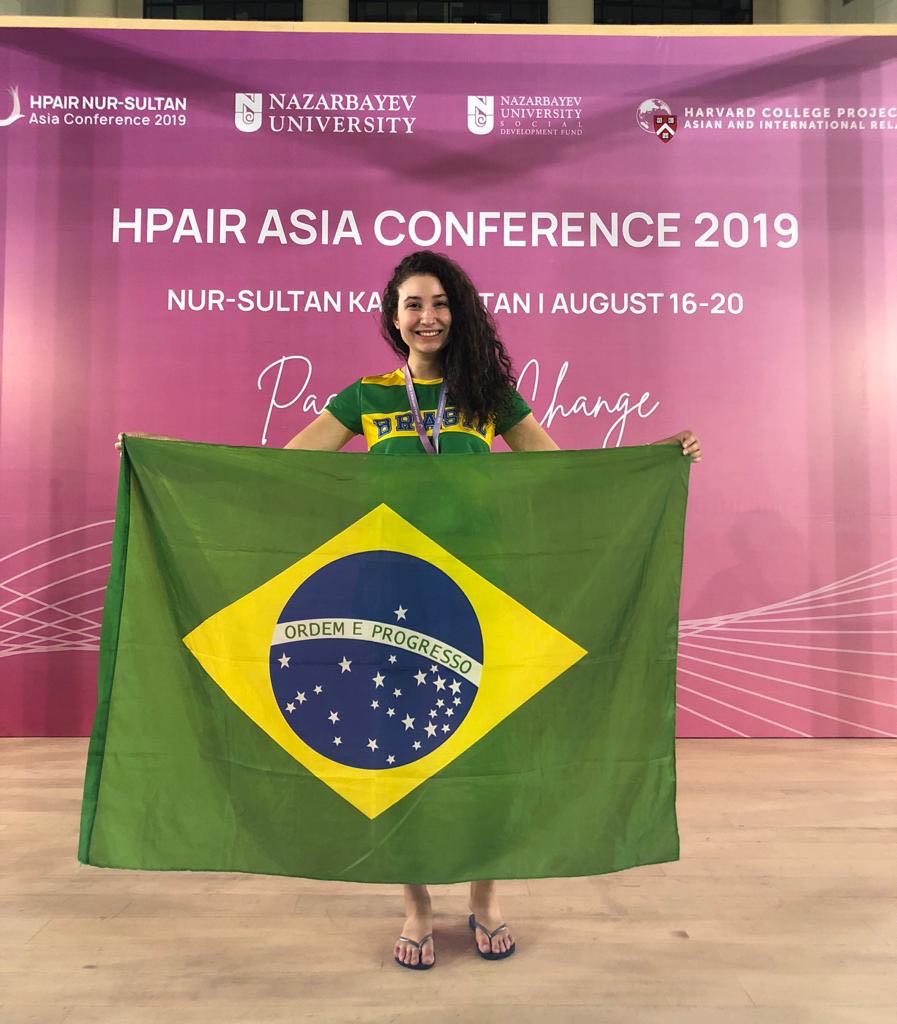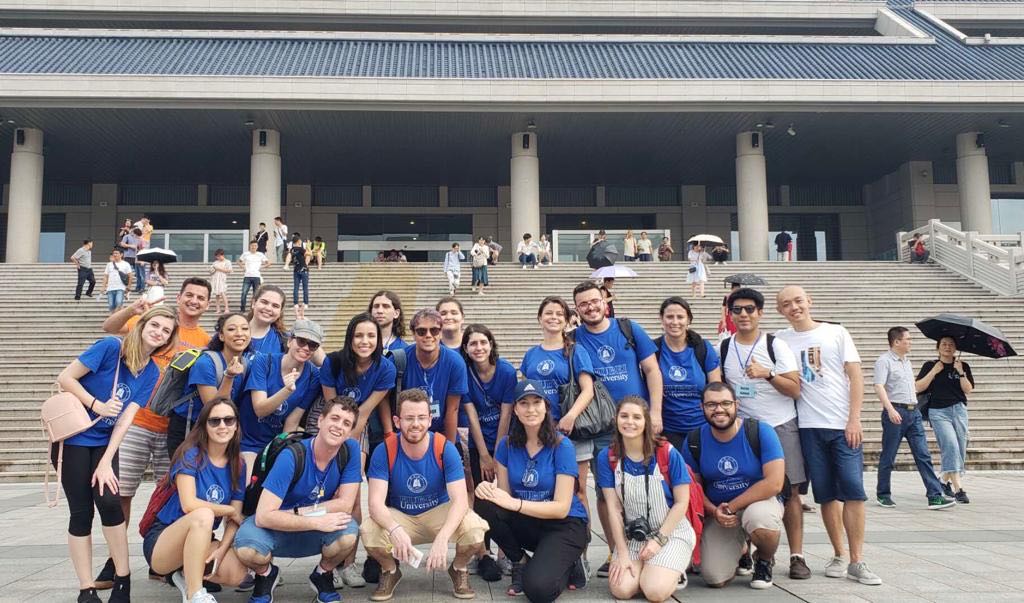Looking Eastward
A series of choices I made during my undergraduate culminated in my decision to study in China. As a student majoring in International Relations, the extensiveness of IR produced a sweet and sour feeling; I sometimes felt I knew a little about many things but a lot about nothing. It satisfied my curiosity and allowed me to get in touch with different study areas, but at the same time, it caused me some discomfort. Focusing on Asia, particularly China, was how I found to keep myself motivated and find purpose in my studies.
Choosing China was not only reasonable from an academic and career perspective. On a more personal note, it was an attempt to break away from the historical US-Eurocentrism that characterizes the Brazilian education system and greatly limits one’s understanding of global issues. In search of a more nuanced and critical perspective of world affairs—that complemented the one I was being taught at São Paulo State University, my alma mater—I decided to look East.
I then proceeded to find opportunities and amass experiences that catered to my interest in China which, consequently, allowed me to build a strong and coherent curriculum. By graduation, selecting a China-based graduate program seemed like the most logical decision. It felt natural and aligned with all my interests. More importantly, the prospect of studying in China genuinely excited me.

Only Scratched at the Surface of What There is to Learn
I first discovered China through its language. Mandarin Chinese was my gateway into China’s history and culture. Back in 2018, after a semester of learning basic Chinese characters and words at the Confucius Institute of my home university, I found myself flying to China for the first time to attend a summer program at Hubei University in Wuhan. It didn’t take long for me to become fascinated—and intrigued—by China. In a matter of days, I was having 热干面 (re gan mian – hot dry noodles) for breakfast, drinking warm water in the height of summer, and randomly joining Chinese grannies in their late afternoon dancing routines.
A year later, I went back, this time to Shanghai. I attended the BRICS Program offered by Fudan University for a month. The experience was intense and intriguing. There was always so much to see and take in—so many unfamiliar cultural cues. I still feel like the vastness of China and things to learn about the country can make one feel like an illiterate. Naturally, several questions arose the more I explored the country. I knew a simple Google search would not provide the answers I wanted. Making sense of what I saw, heard, and felt heightened my curiosity and desire to research China. Experiencing China first-hand also proved that I was on the right path and certainly contributed to my decision to continue my education in this very country. Following this experience, I had plans to return to China soon to explore not only other well-known cities, particularly Guangzhou and Shenzhen, but also more rural, less developed areas of the country. Unfortunately, the COVID-19 pandemic halted my plans.

Yenching Academy
As one of China’s most renowned graduate programs, it did not take long for me to come across the Yenching Academy. I first heard about it in my second year of university and had kept it on my radar. In my final year, between online classes, thesis writing and internship at the Brazil-China Chamber of Commerce, I prepared my application documents for YCA. In all honesty, a part of me was just curious to see if I could get in. Coming from the Global South, I felt this intrinsic insecurity about my achievements, and the struggle to prove my worth. Nonetheless, I challenged myself and applied, and now I am a Yenching Scholar. I have been using this experience to encourage other students like me from the Global South debating about applying for YCA or any other competitive graduate program. We are still grossly underrepresented; there is an urgent need for diversity. We are worthy of occupying available spaces and having our voices heard.
Life at YCA has been challenging, but mostly because of our circumstances. Online classes can take a toll on you, and I find myself constantly trying to find new ways to stay motivated. Also, the time difference can be brutal. I have fond memories of attending classes and delivering presentations at 3 AM or 4 AM.
I am happy I enrolled in interesting courses in the first semester. Despite not being able to participate live in all classes, I still remember some very thought-provoking discussions on gender relations in “Women in Contemporary China.” Similarly, we had engaging discussions on migration issues in the “Chinese Perspective on Global Migration” course. This class offered me the opportunity to co-write a paper on climate migration with a bright Chinese classmate.
Also, Coffee Chats, one of the many initiatives created by fellow YCAers to bring us closer during the pandemic, was one of the highlights of my first semester. Being paired up with different people every week allowed me to know a couple of lovely colleagues who would have otherwise remained strange faces on my computer screen.

So Close, Yet So Far Away
I like thinking that I have been busy with things one would not conventionally call productive. As of the time of this interview, I am enjoying my final days of winter break by backpacking around Thailand, the country I moved to at the end of my first semester at YCA, to escape the São Paulo-Beijing time difference. I am taking some time to wind down and recharge my batteries.
I recently finished volunteer work in the north of the country and am now exploring the islands in the south. I have also been doing some sporadic reading. I am about to start Anna Burns’ “Milkman.” Not an easy read, but one that excites me very much. And, since the new semester is approaching, I am slowly going back to thinking about my thesis and internship opportunities.
I love that I am closer to China, and I wish to travel to campus once it is possible. I have so many things on my to-do list when I finally arrive in Beijing. I am excited to walk around campus. For instance, I have seen countless photos and videos of the Boya Pagoda, but I can only imagine how nice it must be in real life. I am particularly interested in checking out the campus canteens and restaurants in the city. I like Chinese food, and having it so easily and abundantly available is something that I miss from my past experiences in China. But most importantly, I am looking forward to personally meeting other YCAers. Building connections over Zoom is extremely challenging for me, so it will be wonderful to finally see and hang out with everyone on campus.
